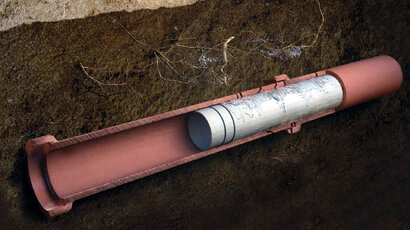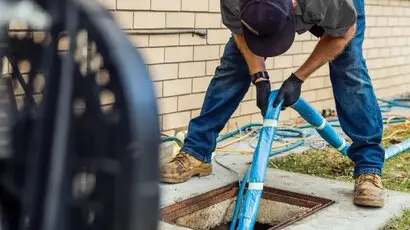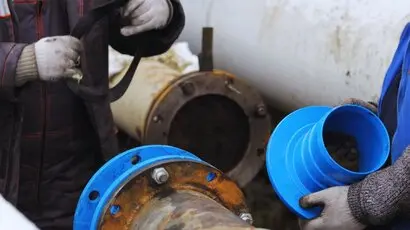Pipe Relining vs. Replacement
Discover the benefits and drawbacks of pipe relining and traditional methods for plumbing repairs. Learn which approach suits your needs best.
In the complex world of plumbing, the dependability of each joint and the flow of every pipe are crucial. Choosing between traditional ways and new solutions can greatly affect your system’s lifespan and efficiency.
This guide aims to simplify the complexities of pipe maintenance, focusing on the key differences between pipe relining and traditional replacement methods.
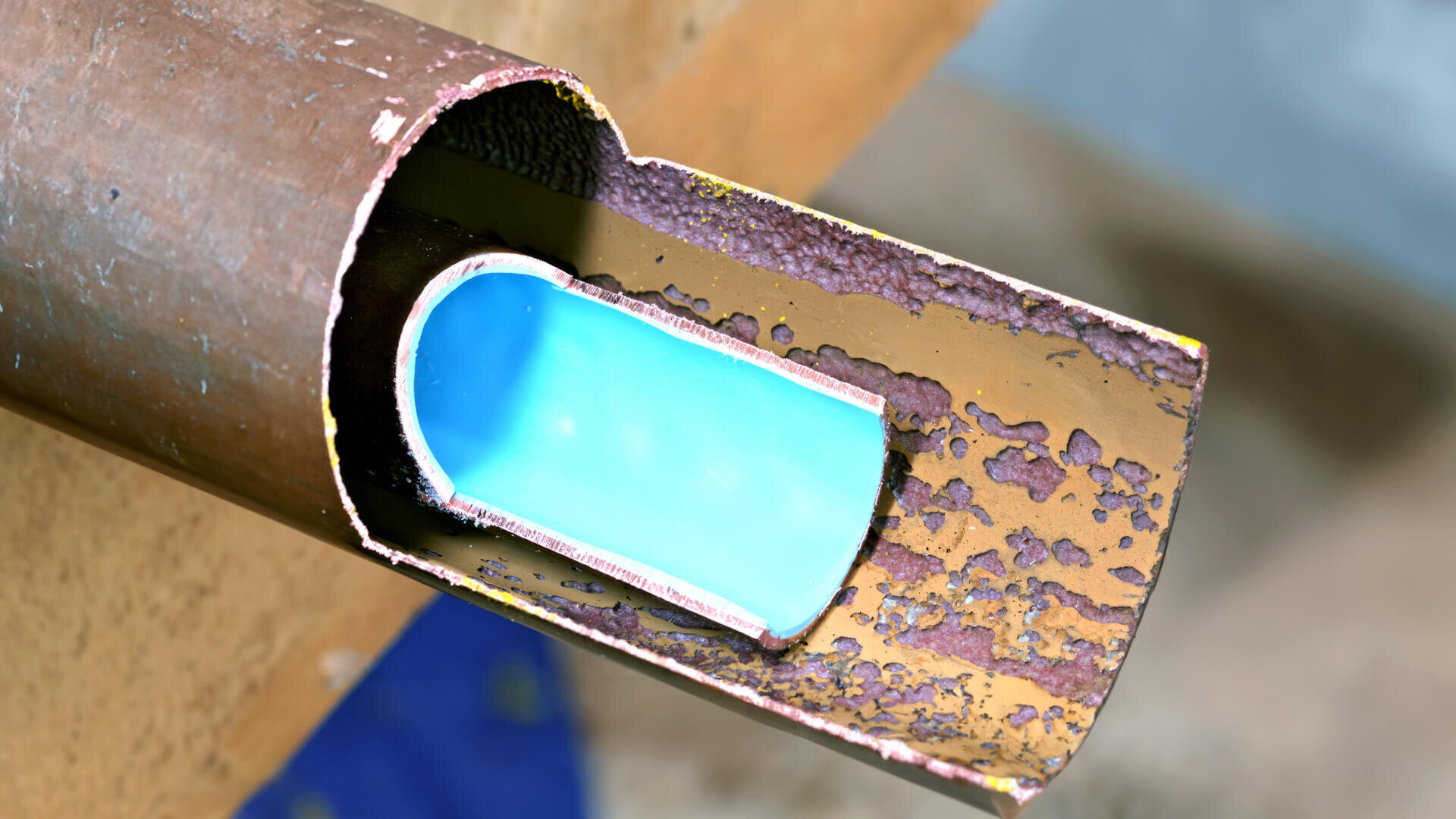
A broken pipe can quickly disrupt the comfort and functionality of your living space in a plumbing emergency. Although effective, the conventional pipe replacement solution often concerns time, cost, and the upheaval it entails.
This is where the innovative concept of pipe relining comes into play. It promises a cost-effective and minimally invasive approach to rejuvenating your plumbing system. Throughout this article, we’ll navigate the landscape of pipe repair, drawing a comparative analysis of a pipe relining project and traditional pipe replacement methods.
We’ll address vital considerations such as pipe relining cost, long-term savings, and each approach’s environmental impact.
Repairing a pipe without replacing it might sound new, but pipe relining techniques are revolutionising the way we think about plumbing repairs. They offer a significant alternative to the traditional method of full replacement.
Both pipe relining and traditional pipe replacement aim to address the challenges of damaged pipes due to corrosion, root intrusion, or wear and tear over time.
Traditional drain pipe replacement involves removing the damaged pipe and installing a new one, which is often time-consuming and resource-intensive.
On the other hand, sewer pipe relining offers a more streamlined approach, focusing on rejuvenating the existing pipe from within. The efficiency gains achieved through pipe relining are substantial.
The streamlined process eliminates the need for extensive excavation and the subsequent restoration of landscaping or infrastructure that often accompanies traditional pipe replacement. As a result, pipe relining minimises disruption and significantly reduces the overall project duration.

Relining pipes is a meticulous endeavour that demands precision and expertise. Instead of removing damaged or broken pipes, pipe relining involves the insertion of a specially formulated resin-saturated liner into the existing pipe.
This liner adheres to the pipe’s interior surface, creating a durable and seamless barrier against leaks, cracks, and corrosion.
One remarkable aspect of pipe relining is its versatility. It can be applied to various pipes, including PVC and drain pipes, making it a viable solution for various plumbing systems.
This adaptability extends to relining pipes with different diameters and configurations, ensuring a comprehensive approach to addressing damaged pipes.
The pipe relining process offers an environmentally conscious approach. The reduced need for new pipe materials contributes to decreased resource consumption and waste generation, aligning with sustainable plumbing practices.
When faced with severely broken or damaged pipes, the traditional method of pipe replacement often comes into play. This approach entails the complete removal of existing pipes, followed by the installation of new ones. It’s a process that has stood the test of time, addressing many plumbing woes, from burst pipes caused by freezing temperatures to pipes eroded by the passage of years.
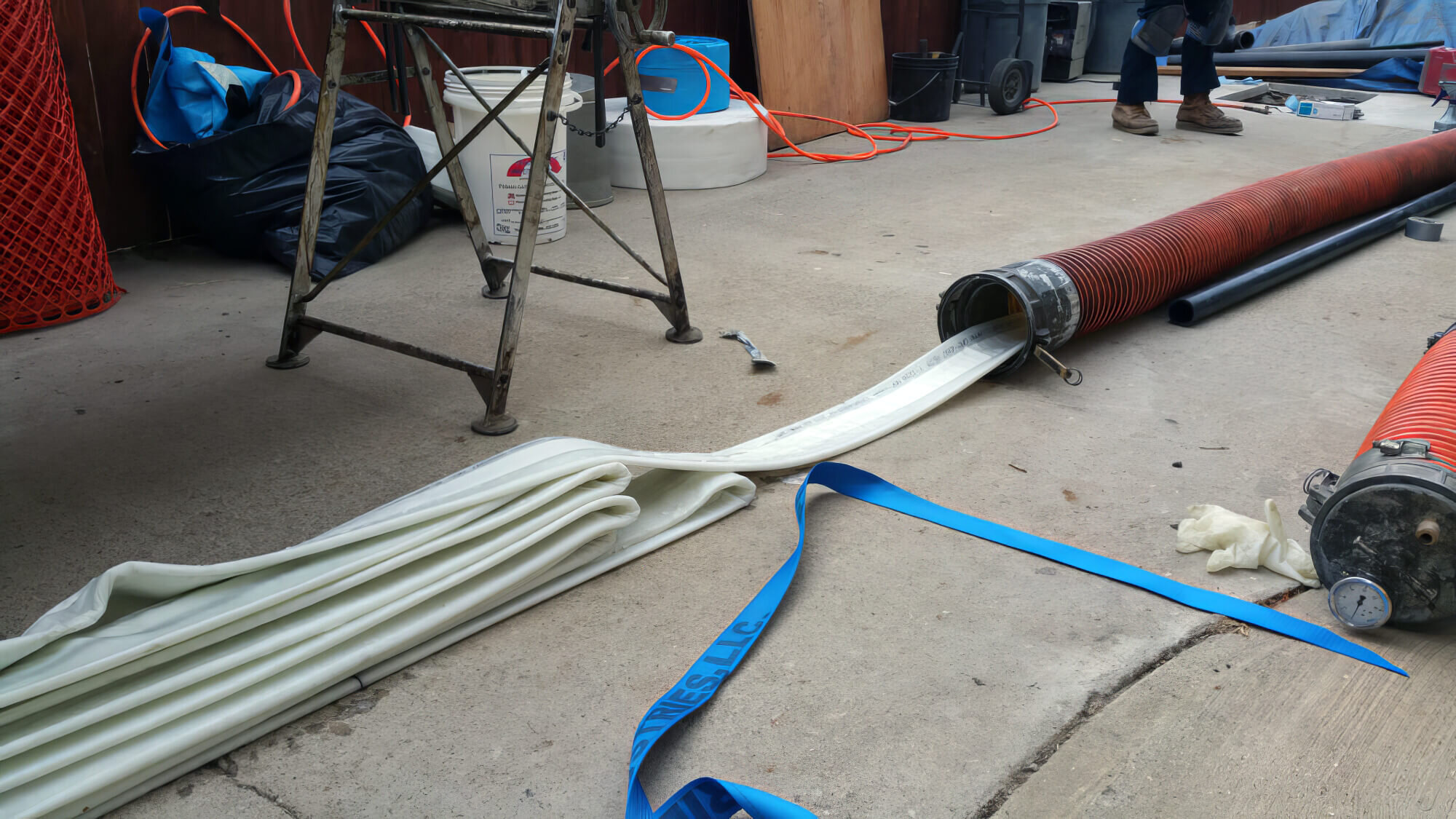
Tree roots, notorious for seeking out moisture and nutrients, can exert immense pressure on pipes, leading to blockages, cracks, and, ultimately, the need for repairs. Traditional pipe replacement offers a solution that addresses the damage caused and the root of the problem—literally. Replacing old pipes with new ones mitigates the risk of tree roots infiltrating the plumbing system, ensuring a more resilient and durable solution.
While pipe relining has introduced a new era of efficiency and eco-friendliness, the traditional method of replacing pipes remains an industry standard. Especially in severely damaged sewer pipes or blocked drains, where the magnitude of the issue demands a comprehensive solution, the traditional approach offers a level of certainty that takes work to match.
When considering the pros and cons of pipe relining versus pipe replacement, it’s clear that both have their uses. The choice depends on several factors, like the damage’s extent and your budget. While the efficiency and minimal disruption of pipe relining are appealing, there are times when the traditional method is necessary.
With its innovative use of advanced techniques and materials, pipe relining has emerged as a cost-effective solution that warrants exploration. The process involves rehabilitating the affected pipe, utilising flexible liners impregnated with a specialised resin. This technique negates the need for extensive excavation, reducing disruption to your property and preserving features such as concrete slabs and retaining walls.
As the rehabilitation process unfolds, CCTV drain cameras play a pivotal role in assessing pipe alignment and pinpointing areas of concern. This real-time visual insight allows for precise placement of the flexible liner, ensuring a seamless and lasting fix for issues like tree root intrusion or pipe damage.
In addition, the compressed air technique employed during the installation ensures the liner’s snug fit against the old pipe, creating a robust and durable barrier against future problems. Pipe relining is cost-effective not only because of its efficient execution but also because of the extended lifespan it provides to your plumbing network.

Complete pipe replacement demands a more substantial investment, both in terms of time and resources. The costly excavation and removal of old pipes, followed by installing new ones, can result in higher upfront costs. This method becomes particularly relevant when dealing with severely damaged or old pipes that demand a complete overhaul to ensure the longevity and efficiency of your pipe network.
The decision to opt for traditional pipe replacement is calculated, considering the specific needs of your plumbing system and the project’s overall scope.
While the cost may be higher, the process’s comprehensive nature, especially in blocked drains or compromised structural integrity, justifies the investment.
As you contemplate the cost-efficiency of pipe relining and pipe replacement, it’s crucial to consider the holistic impact of each approach. Pipe relining offers a permanent fix, targeted and minimally invasive solution, preserving existing structures and delivering long-term value.
While potentially costlier, traditional pipe replacement provides a comprehensive remedy that addresses the root causes of pipe issues, ensuring the sustained functionality of your plumbing system.
In an era where environmental consciousness takes centre stage, the impact of plumbing solutions on our surroundings cannot be overlooked. When it comes to minimising the ecological toll of plumbing repairs, pipe relining is a champion of eco-friendliness.
The process involves rehabilitating the damaged area within the existing pipe, rendering the need for extensive excavation obsolete. The result? Minimal damage to your property’s landscape, reduced waste generation, and a lighter strain on your wallet regarding landscaping costs.
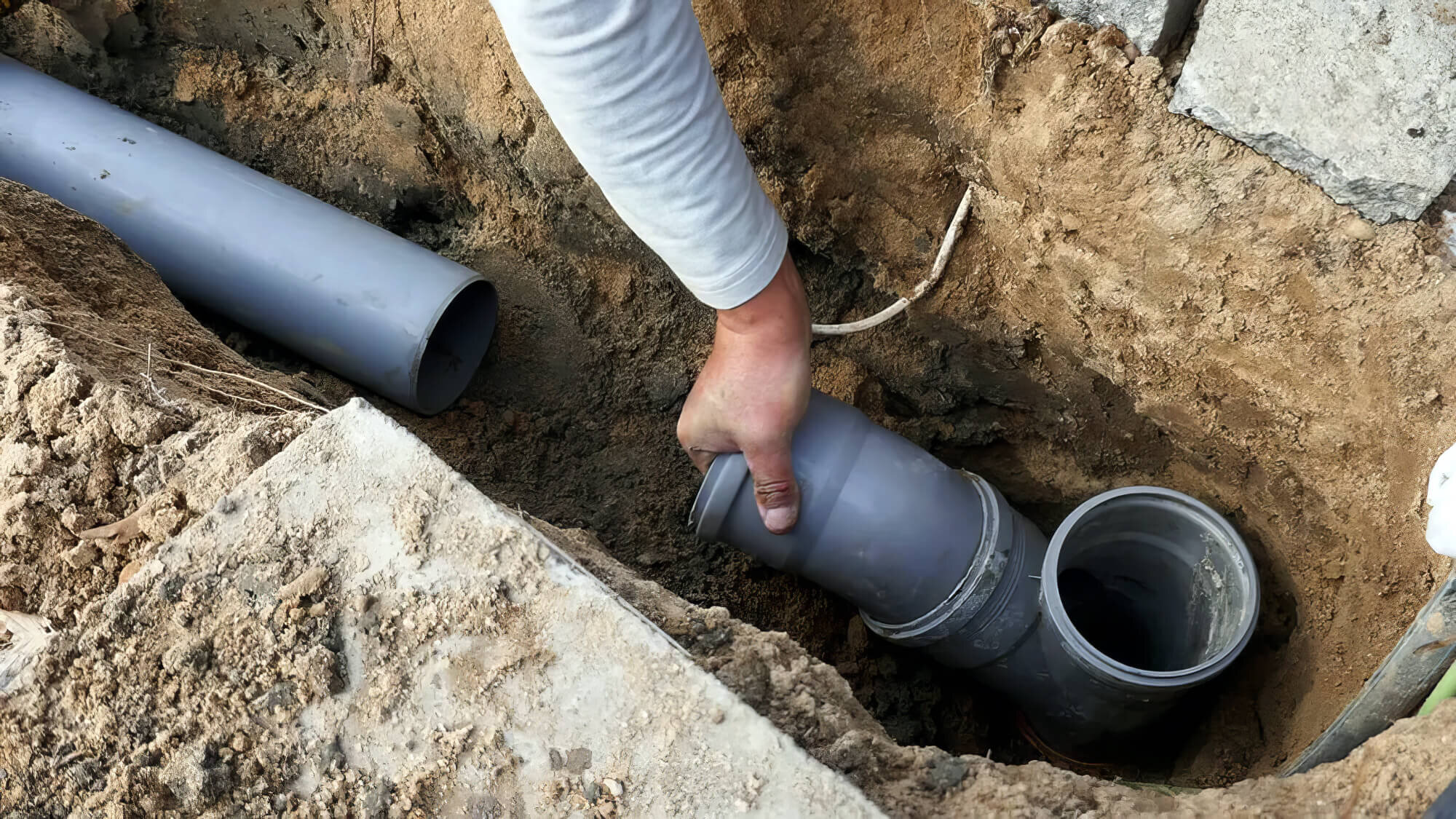
Beyond the immediate benefits, the life expectancy of a relined pipe is noteworthy. The durable and seamless barrier created through the relining process ensures that your plumbing issues are addressed while preserving the structural integrity of the affected pipe. This translates to fewer disruptions, less property restoration, and a longer-lasting solution.
In the traditional realm, pipe replacement requires a more comprehensive approach involving extensive excavation and property restoration.
While the fully functional outcome is undeniable, the time-consuming and resource-intensive nature of the process raises concerns about its eco-friendliness. The landscaping costs and the disruption caused can leave a more significant ecological footprint, warranting careful consideration.
Whether grappling with damaged pipes, considering a pipe relining project, or contemplating traditional pipe replacement, the first step towards resolution is at your fingertips. Don’t let plumbing challenges dictate your daily routine or compromise the integrity of your property. Take charge of your plumbing destiny by scheduling an appointment with our seasoned experts.
Enjoy the convenience of same-day service, the certainty of fixed prices, and peace of mind with a lifetime labour guarantee. Let us help you navigate your options, offering insights to make informed choices that fit your plumbing needs and aspirations.
Embrace the future of plumbing repairs—one that blends innovation, sustainability, and expert guidance. Schedule an appointment today and embark on a journey toward a seamlessly functioning plumbing system that will stand the test of time.
We are wondering how pipe relining works to restore the proper functioning of any plumbing system? We break it down for you through this extensive guide on the topic.
Blocked drains can be a major inconvenience, but with the help of pipe relining, you can effectively resolve the issue and avoid costly and disruptive repairs. This blog explores the reasons why drains get blocked and explains how pipe relining offers a long-lasting solution for maintaining clear and efficient drainage systems.
Pipe relining is transforming the plumbing industry with its cost-effective and efficient approach to pipe repairs. This blog delves into the revolutionary benefits of pipe relining, including its durability, non-invasive nature, long-term cost savings, and minimal disruption to your property.
